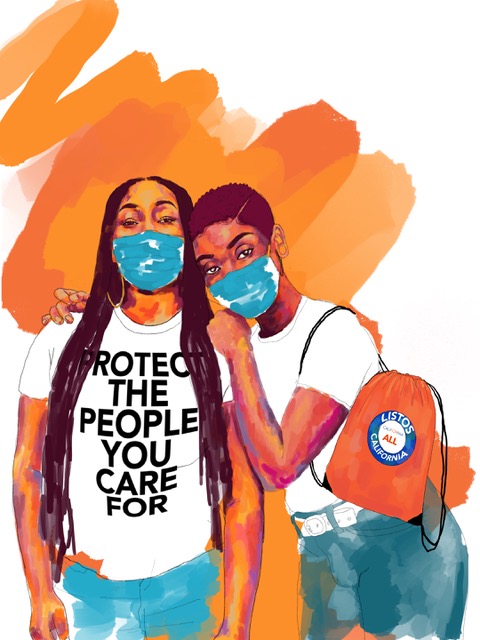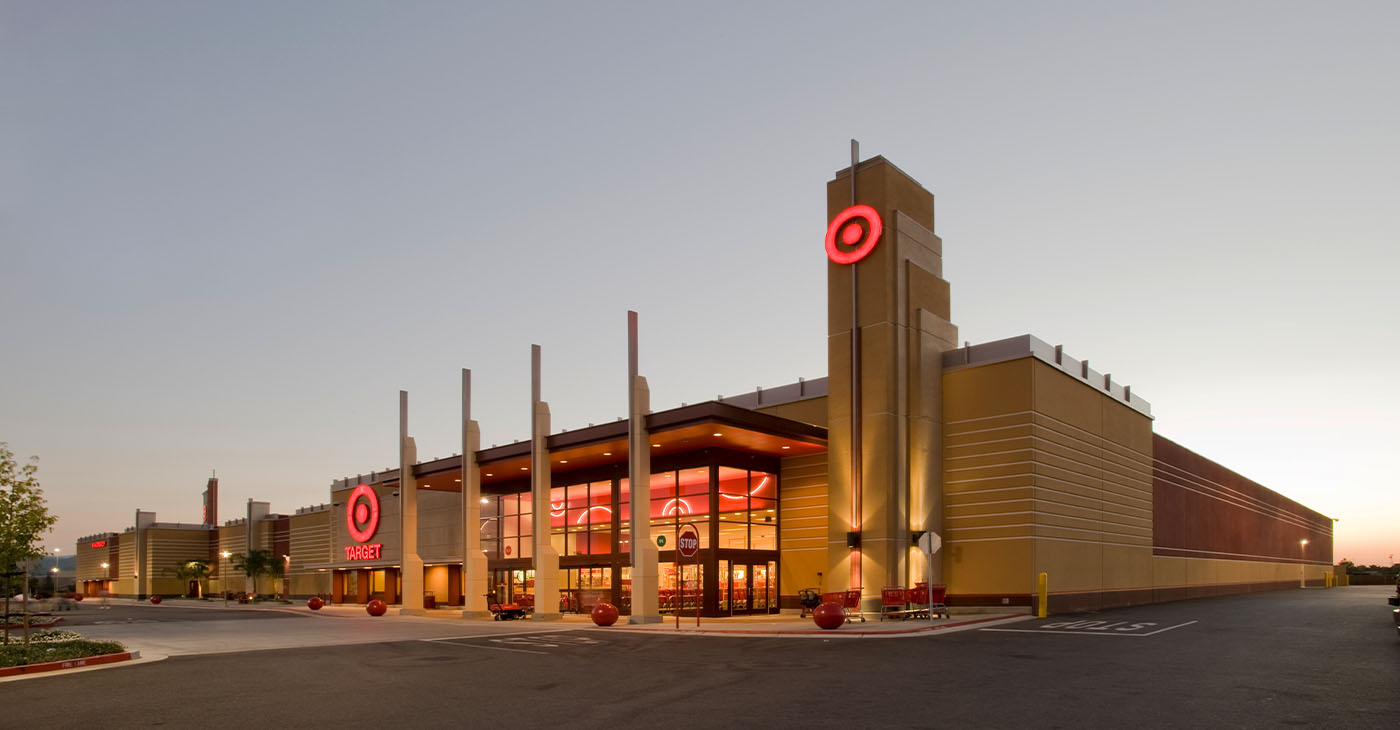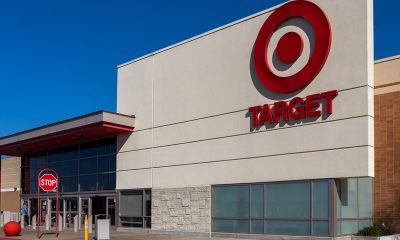#NNPA BlackPress
Planning for the Worst – Black Californians Among Groups State is Targeting for Emergency Preparedness

Black Americans were already in the midst of two disasters this year – the disproportionate toll of the COVID-19 pandemic and a spate of horrifying incidents of police brutality — when fire season in California started early. Wildfires have burned over 3.1 million acres in California since the beginning of the year, breaking the record for the deadliest year of wildfires in the state, according to CalFire.
Though Black communities are disproportionately vulnerable to and impacted by disasters, Black households are less likely to be prepared for disasters than White households, according to the NAACP.
This September, which is Emergency Preparedness Month, some Black activists as well as community-based organizations have been partnering with Listos California, an emergency preparedness campaign anchored in the Governor’s Office of Emergency Services (CalOES). These partnerships are aimed at getting the word out about emergency preparedness to diverse communities through more accessible and impactful means, such as artwork and person-to-person conversation.
“Listos California awarded $50 million in local assistance grants to non-profit organizations throughout the state to build resiliency in vulnerable communities and connect residents to culturally and linguistically competent support — a whole community approach that fosters critical networks that can save lives. This month, I urge all Californians to learn about how they can help keep their loved ones and communities safe during an emergency,” said Gov. Gavin Newsom in his declaration for Emergency Preparedness Month.
For Aliyah Sidqe, a Sacramento-based artist who depicts Black life in America, it’s important for the Black community to be prepared to fend for themselves, she says, in an emergency situation.
“The Black community is already subject to a lot, and we’re not thought about all the time. It’s important for us to take matters into our own hands and really be prepared for what’s to come because sometimes we’re not considered in the game plan as far as what the world needs to do,” Sidqe said.
According to a poll of California residents living in zip codes at risk of floods, wildfires or earthquakes, conducted by EMC Research, 88 % of vulnerable residents agree that preparing for a disaster is important. However, those respondents admitted to not taking action to prepare because they think doing so is scary (63%), expensive (61%) or time-consuming (54%).
“I think a portion of people don’t take certain things seriously, or they’re not really thinking about all that is going on right now. It’s easier just to kind of push that to the back of your mind. But I think the fact that we’re already marginalized makes it super important for us to really be ready to take care of ourselves and be prepared for anything,” Sidqe said.
Since partnering with Listos California, Sidqe has started conversations with family members and friends about what they would do during emergencies.
“Before I really hadn’t thought too much about it, but it did kind of spark that, for my partner and me — conversations like where would we go if we did have to evacuate. Actually, in our area, there was a fire really close to us and a few neighborhoods had to evacuate. So, we did put a plan in place of where we would go in case that would happen.”
The Young Visionaries Youth Leadership Academy, a nonprofit serving youth in San Bernardino County, has been sharing information about emergency preparedness alongside their ongoing COVID-19 relief efforts. During their relief events, which include twice-a-month drive-thru distribution of essential items, CEO Terrance Stone and the Young Visionaries staff inform community members about the importance of being prepared.
“I’ve been introducing the program like this: I always ask if somebody came and knocked at your door right now, and told you that you have five minutes to pack your necessities and go, are you going to be able to get what you need within those five minutes? It’s an eye-opener for everybody, because then they’re like, wait, like what do I actually need,” said Jennifer Rosales, Administrative Assistant at Young Visionaries.
“I tell everybody, it doesn’t have to be expensive. You don’t have to go out and spend $200, $300 to try to get a go-bag or a ready bag. I think the number one thing is this: Just look at your basic needs, something that you need every day, and then just start that way. It’s important to know that it doesn’t have to cost you a lot of money to keep your family and your friends safe,” said Rosales.
El Sol Neighborhood Education Center is coordinating outreach activities with 11 community groups from different parts of San Bernardino County.
“We have developed specific strategies to target specific communities. We have to bring cultural brokers or cultural speakers so that they understand the language, the culture and the lived experiences of each target community. We partner with agencies and churches — African American, Asian American, Latino and Native American partners. Each group knows how to best reach the people in their own communities”, says Alex Fajardo, El Sol’s executive director.
The Listos California website has Disaster Ready Guides in multiple languages if readers want to know more about what to have prepared for an emergency.
#NNPA BlackPress
UPDATE: PepsiCo Meets with Sharpton Over DEI Rollbacks, Future Action Pending
BLACKPRESSUSA NEWSWIRE — The more than hour-long meeting included PepsiCo Chairman Ramon Laguarta and Steven Williams, CEO of PepsiCo North America, and was held within the 21-day window Sharpton had given the company to respond.

By Stacy M. Brown
BlackPressUSA.com Senior National Correspondent
Rev. Al Sharpton met Tuesday morning with PepsiCo leadership at the company’s global headquarters in Purchase, New York, following sharp criticism of the food and beverage giant’s decision to scale back nearly $500 million in diversity, equity, and inclusion (DEI) initiatives. The more than hour-long meeting included PepsiCo Chairman Ramon Laguarta and Steven Williams, CEO of PepsiCo North America, and was held within the 21-day window Sharpton had given the company to respond. Sharpton was joined by members of the National Action Network (NAN), the civil rights organization he founded and leads. “It was a constructive conversation,” Sharpton said after the meeting. “We agreed to follow up meetings within the next few days. After that continued dialogue, NAN Chairman Dr. W. Franklyn Richardson and I, both former members of the company’s African American Advisory Board, will make a final determination and recommendation to the organization on what we will do around PepsiCo moving forward, as we continue to deal with a broader swath of corporations with whom we will either boycott or buy-cott.”
Sharpton initially raised concerns in an April 4 letter to Laguarta, accusing the company of abandoning its equity commitments and threatening a boycott if PepsiCo did not meet within three weeks. PepsiCo announced in February that it would no longer maintain specific goals for minority representation in its management or among its suppliers — a move that drew criticism from civil rights advocates. “You have walked away from equity,” Sharpton wrote at the time, pointing to the dismantling of hiring goals and community partnerships as clear signs that “political pressure has outweighed principle.” PepsiCo did not issue a statement following Tuesday’s meeting. The company joins a growing list of major corporations — including Walmart and Target — that have scaled back internal DEI efforts since President Donald Trump returned to office. Trump has eliminated DEI programs from the federal government and warned public schools to do the same or risk losing federal funding. Sharpton has vowed to hold companies accountable. In January, he led a “buy-cott” at Costco to applaud the retailer’s ongoing DEI efforts and announced that NAN would identify two corporations to boycott within 90 days if they failed to uphold equity commitments. “That is the only viable tool that I see at this time, which is why we’ve rewarded those that stood with us,” Sharpton said.
#NNPA BlackPress
Target Reels from Boycotts, Employee Revolt, and Massive Losses as Activists Plot Next Moves
BLACKPRESSUSA NEWSWIRE — Target is spiraling as consumer boycotts intensify, workers push to unionize, and the company faces mounting financial losses following its rollback of diversity, equity, and inclusion (DEI) initiatives.

By Stacy M. Brown
BlackPressUSA.com Senior National Correspondent
Target is spiraling as consumer boycotts intensify, workers push to unionize, and the company faces mounting financial losses following its rollback of diversity, equity, and inclusion (DEI) initiatives. With foot traffic plummeting, stock prices at a five-year low, and employee discontent boiling over, national civil rights leaders and grassroots organizers are vowing to escalate pressure in the weeks ahead. Led by Georgia pastor Rev. Jamal Bryant, a 40-day “Targetfast” aligned with the Lenten season continues to gain traction. “This is about holding companies accountable for abandoning progress,” Bryant said, as the campaign encourages consumers to shop elsewhere. Groups like the NAACP, the National Newspaper Publishers Association, and The People’s Union USA are amplifying the effort, organizing mass boycotts and strategic buying initiatives to target what they call corporate surrender to bigotry.
Meanwhile, Target’s workforce is in an open revolt. On Reddit, self-identified employees described mass resignations, frustration with meager pay raises, and growing calls to unionize. “We’ve had six people give their two-week notices,” one worker wrote. “A rogue team member gathered us in the back room and started talking about forming a union.” Others echoed the sentiment, with users posting messages like, “We’ve been talking about forming a union at my store too,” and “Good on them for trying to organize—it needs to happen.” Target’s problems aren’t just anecdotal. The numbers reflect a company in crisis. The retail giant has logged 10 straight weeks of falling in-store traffic. In February, foot traffic dropped 9% year-over-year, including a 9.5% plunge on February 28 during the 24-hour “economic blackout” boycott organized by The People’s Union USA. March saw a 6.5% decline compared to the previous year. Operating income fell 21% in the most recent quarter, and the company’s stock (TGT) opened at just $94 on April 14, down from $142 in January before the DEI cuts and subsequent backlash. The economic backlash is growing louder online, too.
“We are still boycotting Target due to them bending to bigotry by eroding their DEI programs,” posted the activist group We Are Somebody on April 14. “Target stock has gone down, and their projections remain flat. DEI was good for business. Do the right thing.” Former congresswoman Nina Turner, a senior fellow at The New School’s Institute on Race, Power and Political Economy, wrote, “Boycotts are effective. Boycotts must have a demand. We will continue to boycott until our demands are met.” More action is on the horizon. Another Target boycott is scheduled for June 3–9, part of a broader campaign targeting corporations that have abandoned DEI initiatives under pressure from right-wing politics and recent executive orders by President Donald Trump. The People’s Union USA, which led the February 28 boycott, has already launched similar weeklong actions against Walmart and announced upcoming boycotts of Amazon (May 6–12), Walmart again (May 20–26), and McDonald’s (June 24–30). The organization’s founder, John Schwarz, said the goal is nothing short of shifting the economic power balance.
“We are going to remind them who has the power,” Schwarz said. “For one day, we turn it off. For one day, we shut it down. For one day, we remind them that this country does not belong to the elite, it belongs to the people.” As for Target, its top executives continue to downplay the damage. During a recent earnings call, Chief Financial Officer Jim Lee described the outlook for 2025 as uncertain, citing the “ripple” effects of tariffs and a wide range of possible outcomes. “We’re going to be focusing on controlling what we can control,” Lee said. But discontent is spreading internally. A Reddit post from a worker claimed, “The HR rep is doing his best to stop the bleeding, but all he did was put a Bluey band-aid on what is essentially a severed limb.”
Several employees criticized the company’s internal rewards system, “Bullseye Bucks,” for offering what amounts to play money. “Can’t pay rent or buy food with Bullseye Bucks,” one wrote. Others urged their colleagues to join unionizing efforts. “Imagine how much Target would lose their mind if they were under a union contract,” one team leader wrote. “It needs to happen at this point.” One former manager said they left the company after an insulting raise. “Quit last year when they gave me a 28-cent raise. Best decision I’ve ever made.” From store floors to boardrooms, the pressure is growing on Target. And as calls for justice, equity, and worker rights get louder, one worker put it plainly: “We’re all screwed—unless we fight back.”
#NNPA BlackPress
Confederates Whistle Dixie Tunes and Black MAGA Applauds
BLACKPRESSUSA NEWSWIRE — They include Black MAGA supporters who’ve chosen silence—even solidarity—as racism escalates from campaign rhetoric to federal policy.

By Stacy M. Brown
BlackPressUSA.com Senior National Correspondent
In Donald Trump’s second term, the faces of compliance are no longer just white. They include Black MAGA supporters who’ve chosen silence—even solidarity—as racism escalates from campaign rhetoric to federal policy. When Trump returned to the White House, he did so with a platform not just soaked in bigotry but engineered to roll back civil rights and diversity efforts on every front. And while his white base cheered, many of his Black allies—those donning MAGA hats and taking up seats on the frontlines of his rallies—chose loyalty over principle, muting themselves as a wave of white nationalist policymaking targets their communities.
Their silence began long before Inauguration Day. During the 2024 campaign, Trump’s Madison Square Garden rally drew fire after a comedian on the lineup referred to Puerto Rico as “garbage.” But that wasn’t the only racist moment. As Florida Rep. Byron Donalds, one of Trump’s most visible Black surrogates, walked onto the stage, the campaign blasted “Dixie”—a song revered by the Confederacy and white nationalists. Donalds said nothing. And neither did the rest of Black MAGA. That same silence echoed in Springfield, Ohio, when Trump and his running mate, J.D. Vance, spread a false and racist claim that Haitian immigrants were “eating cats and dogs.” The fabrication was met with horror from civil rights advocates and journalists. But Trump’s Black supporters? Not a word.
Black MAGA loyalists, many of whom cite values, religion, and personal ambition as their rationale, have essentially normalized the very racism that their grandparents fought to dismantle. Pew Research shows that while only 4% of Black Americans identify as Republicans, those who do often express a belief that the GOP better represents their values—even as those values are trampled by the very administration they support. One study published in Sociological Inquiry found that Black Republicans often “reframe racism in a way that makes their alignment with white conservatives more palatable,” even when it involves rationalizing policies that harm Black communities. And harm is precisely what Trump’s policies are doing. Since taking office, Trump has issued a barrage of executive orders aimed at eliminating diversity, equity, and inclusion initiatives across the federal government. Agencies that serve minority communities have faced massive defunding, DEI offices have been shuttered, and civil rights enforcement has all but disappeared. As noted in The Hill, the goal is not just the destruction of policy—it’s the erasure of progress itself.
“Every act of Trump’s second term has been a white-nationalist signal,” wrote one analyst in The American Prospect, calling MAGA an “identity movement” that champions white grievance over democratic principle. There is little space for Blackness, except as a prop. And yet, some Black Trump supporters defend the administration with defiance. One such supporter, who canvassed for Trump in 2024, told The Independent he was called the N-word by fellow conservatives. Rather than walking away, he doubled down on his allegiance. The consequences of this allegiance are becoming deadly clear. As TIME reported, nearly 20% of Trump supporters said freeing the slaves was a mistake. According to The Washington Post, support for Trump has long been fueled more by racial resentment than economic concerns, and that resentment has now translated into policy.
A report from Press Watch concluded that Trump’s base continues to be driven by a desire to protect white dominance and suppress nonwhite progress, particularly through culture war battles over schools, immigration, and federal hiring. Even academic journals have noted that wearing a MAGA hat has become “a proxy for racialized identity”—an affirmation of white supremacy, no matter who’s wearing it. Meanwhile, The Conversation documented how MAGA’s rise has coincided with increased armed intimidation at polling places, violent rhetoric against journalists, and calls to monitor so-called “urban” neighborhoods—all with Trump’s encouragement. The Black MAGA base has not only failed to object—they’ve offered Trump moral cover. Whether out of personal ambition, political opportunity, or delusion, they’ve made peace with racists, while the administration they uphold works tirelessly to erase the freedoms won through generations of Black struggle. As The American Prospect put it: “Trump’s MAGA identity is a movement rooted in white identity politics. That some Black Americans have chosen to stand inside of it doesn’t make it less racist—it makes it more dangerous”
-

 Activism4 weeks ago
Activism4 weeks agoWe Fought on Opposite Sides of the Sheng Thao Recall. Here’s Why We’re Uniting Behind Barbara Lee for Oakland Mayor
-

 Activism4 weeks ago
Activism4 weeks agoFaith Leaders Back Barbara Lee for Mayor, Criticize Candidate Loren Taylor for Dishonest Campaigning
-

 Activism3 weeks ago
Activism3 weeks agoOakland’s Most Vulnerable Neighborhoods Are Struggling to Eat and Stay Healthy
-

 #NNPA BlackPress4 weeks ago
#NNPA BlackPress4 weeks agoRev. Dr. Jamal Bryant’s Black Church Target Boycott Mobilizes 150,000
-

 #NNPA BlackPress4 weeks ago
#NNPA BlackPress4 weeks agoRecently Approved Budget Plan Favors Wealthy, Slashes Aid to Low-Income Americans
-

 Activism2 weeks ago
Activism2 weeks agoOakland Post Endorses Barbara Lee
-

 Activism4 weeks ago
Activism4 weeks agoGroup Takes First Steps to Recall District Attorney Diana Becton
-

 Activism4 weeks ago
Activism4 weeks agoOakland Post: Week of March 19 – 25, 2025





















































